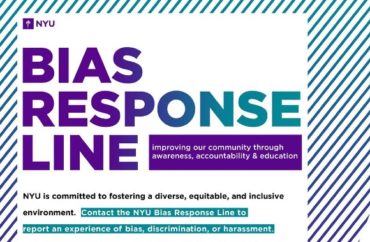
College bias-response teams should be reformed or eliminated because they chill free speech, deny due process, and don’t deliver on intended goals, psychology Professor Christopher Ferguson wrote in a Monday op-ed for The Chronicle of Higher Education.
“The past decade has seen an explosion of “bias-response teams” (BRTs) on college campuses,” Ferguson, who teaches at Stetson University in Florida, wrote in The Chronicle.
College bias-response teams exist to respond to reported acts of harmful or offensive conduct, particularly speech or actions denigrating a minority group, “that don’t rise to the level of either a crime or a code-of-conduct issue,” Ferguson wrote.
However, “one of the main criticisms lobbed against the teams concerns the extreme vagueness of the concept of ‘bias’ involved,” Ferguson wrote. “What if BRTs chill legitimate speech, including on difficult topics related to race, sexuality, religion, and other identity issues?”
Bias-response teams “are motivated by a good-faith goal: to help students experiencing discomfort over incidents in which they feel attacked for their race, sexuality, religion, or other group identity,” Stetson wrote.
“But concerns have emerged regarding the degree to which they succeed at fostering inclusivity in the first place and whether, in fact, they may chill speech.”
Though some BRTs simply provide emotional support to the offended, others have significant power over the accused, Ferguson continued:
[BRTs] may contact alleged bias-doers, keep files on them, pressure them to apologize, sanction them, or simply act as conduits toward other, harsher sanctioning bodies.
Because bias-response teams often involve college administrators and college police officers, the perception of the teams as coercive bodies is not unreasonable. …
Many of the teams allow for anonymous reporting, in some cases creating Kafkaesque situations in which individuals are sanctioned without ever even being told why, let alone being able to defend themselves.
In 2023, for instance, an Ohio Northern University professor named Scott Gerber was informed that an investigation had begun against him, one that could potentially result in his dismissal — but neither he nor his lawyer was informed what, exactly, the investigation was investigating.
Campus free-speech problems are, at this juncture, well documented.
Even more, though BRTs “are designed to reduce anxiety” and improve student camaraderie, they can’t point to evidence that they work, Ferguson wrote. On the contrary, “there are plenty of reasons to suspect that they are harmful.”
More than half of 824 American colleges and universities surveyed had a bias-response team as of 2022, according to a study by the nonprofit Speech First.
“As universities have begun to roll back other DEI efforts, it may be time to consider whether BRTs are worth the cost,” Ferguson concluded.
MORE: New report warns dozens of universities violate students’ due process rights
IMAGE: New York University
Like The College Fix on Facebook / Follow us on Twitter




Add to the Discussion